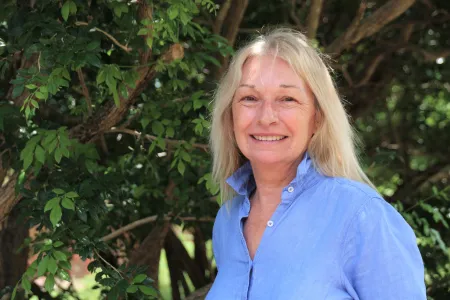News
Digital ‘skills passport’ enables Territory job seekers to reach their employment goals
A digital ‘skills passport’ being developed by Charles Darwin University (CDU)’s Northern Institute will support job seekers and school leavers in the Territory to showcase their skills and knowledge and improve their employment prospects.
Stakeholders from the regions are co-designing the ‘passport’ for the pilot program, funded by the Northern Territory Government’s Department of Industry, Tourism and Trade, to improve local employment outcomes in the Barkly and Big Rivers regions.
A digital ‘skills passport’ is an online collection of evidence of skills, training, knowledge, and experience that job seekers can share with potential employers.
Job seekers can add their education, training, licences, and work experiences to the digital ‘skills passport’ through the software to showcase their skills and improve their likelihood of employment and further educational opportunities.
Human services, early childhood education, construction, essential services, agriculture, horticulture and conservation and land management are the main industries in the Barkly and Big Rivers regions prioritised as part of the trial starting early 2022.
The project targets Northern Territory residents aged 15 years and over, including school students, school leavers, Vocational Education and Training (VET) students and local migrant workers hoping to land jobs in local industries.
CDU Northern Institute's project coordinator and research associate, Alicia Boyle, said the digital ‘skills passport’ would enable young job seekers to develop an education and training, employment and skills portfolio.
“The idea of a digital ‘skills passport’ is to make visible people’s skills, knowledge and experience so they can show potential employers,” Ms Boyle said.
“Knowing what employers want to know about job applicants is the key.”
Ms Boyle said the program could encourage more remote school and VET students to seek opportunities in their desired occupation close to home.
“The project will create visible pathways for VET students and job seekers in the regions to allow them to see the training and skill development they need to reach their employment goals,” she said
“We want to make sure the building blocks and pathways to a job are visible to job seekers, so they know what they need to do to improve their chances of getting and job and staying in it.
“The digital ‘skills passport’ pilot project will bring together schools, employers, registered training organisations and other service providers to identify the pathways that are supported by training locally.”
The platform will support pathways for entry, semi-skilled and skilled positions.
Job screening requirements such as a police check and working with children card, white card, first aid training certificates, licences, job references and even COVID-19 vaccination certificates can all be added to a digital ‘skills passport’.
The project will also explore the opportunity to identify and badge micro-credentials that recognise a set of skills and knowledge identified as important for employment in the Barkly and Big Rivers regions.
“The project can also help improve people’s digital literacy. Once you have things digitised, you can keep them safe and repurpose them for so many things,” she said.
Related Articles

First “hype cycle” of AI development put tech above humans
Users around the world have rushed to adopt artificial intelligence - especially in safety-critical fields - but a new study has revealed the hype has prioritised technology for technology’s sake instead of human-centred development.
Read more about First “hype cycle” of AI development put tech above humans
Nanoplastics hindering cognitive abilities of fish, international research shows
Nanoplastic exposure can impair the cognitive abilities of fish and could lead to significant impacts on marine species’ ability to survive, according to a new international study.
Read more about Nanoplastics hindering cognitive abilities of fish, international research shows
New project to grow Indigenous aquaculture on one of Australia’s largest islands
An Australian island’s efforts to improve food security and transition into a blue economy will be bolstered by a new project to propagate a nutritious and increasingly popular fish.
Read more about New project to grow Indigenous aquaculture on one of Australia’s largest islands
